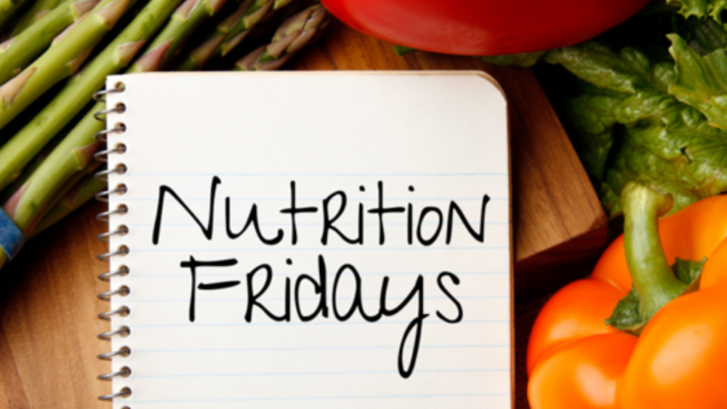Nutrition Friday: Chronic Pain and Food
Chronic Pain and Inflammation
Chronic pain is defined as any pain that usually lasts longer than three months. It is often paired with emotional and psychological suffering, and especially targets people at risk, such as the elderly and uninsured. The significant prevalence and danger of chronic pain cannot be understated; chronic pain related illnesses are one of the driving factors behind disability around the world.
Inflammation occurs when substances brought into the body activate an immune system reaction, whether it is healthy or not. Inflammation is a consistently leading cause of This is where diet comes into play with long-term health. Untreated, long-term inflammation is often a key factor in heart disease, strokes, arthritis, and even Alzheimer’s.
Inflammatory Foods
The problem isn’t necessarily that the food we eat causes inflammation. Rather, the American food industry primarily produces and pushes foods that don’t promote an anti-inflammatory response, which ends up keeping people in cycles of pain and exhaustion. Our bodies require a kindness and a discipline that is tailored to our specific needs. Health specialists have recommended making lifestyle changes to adjust to our pain, and
Another significant factor related to chronic pain is obesity, which can also contribute to developing a chronic or degenerative disease. Obesity may lead someone to develop more intense pain than a person with less body fat would with the same condition. Inflammation is directly tied to body fat, and it may exacerbate the pain and suffering experienced from chronic pain. If losing weight is unlikely, avoiding further weight gain may help subside some of the chronic pain that one may be dealing with on a day-to-day basis.
The foods to avoid in regards to chronic pain include, but are not limited to:
- Simple , such as foods that contain glucose, fructose, sucrose, raw sugar, brown sugar, fruit juice concentrate, corn syrup, and high fructose corn syrup
- Dairy
- Red meat
In particular, red meat seems to be directly related with inflammation and pain. Some experts say that you should only eat it
Before considering any dramatic diet or lifestyle changes, please consult a trusted medical expert or licensed nutritionist first. They can help you develop a routine and plan that is suited to your particular needs.
Anti-Inflammatory Diets
The recommended course of action someone can take in regards to their diet would be to replace their pro-inflammatory food choices with unsaturated fats, vegetables, and fruits. Spices such as ginger, garlic, and turmeric are also a remarkably valuable asset towards fighting inflammation.
An important step forward to fighting inflammation and minimizing chronic pain is a diet that contains the following;
The drive to push anti-inflammatory habits has led many dieticians to point to the Mediterranean diet as a potential solution to significant inflammation. The Mediterranean diet consists of plant-based foods and whole grains, with some seafood in moderation.
One of the more common routes to maintain an anti-inflammatory diet is to follow a vegetarian or plant-based diet. If your personal struggles with inflammation are your primary focus towards a plant-based diet, the key to success is orienting your meals around
Intermittent Fasting
Many experts have recently began to sing the praises of the different methods of intermittent fasting.
- The 16-8 block is when you only allow yourself to eat during an 8 hour period throughout the day, fasting for the other 16. For example, when following this diet, you might only eat from 12pm-8pm.
- Avoiding food before bed will also bring down inflammation due to the body’s difficulty digesting during sleep, and also assists in regulating the circadian clock, which is itself .
- Alternate day fasting can be taken at face value— you eat or fast on alternating days.
- Modified fasting composes of eating as you regularly would for 5 days a week, and restricting yourself to ¼ of your normal caloric intake for 2 non-consecutive days a week.
Chronic Pain and Inflammation Management
There isn’t a quick or instant solution to fighting inflammation. It comes with an entire change in how we think and feel about food. Diet and exercise can be an extremely helpful benefit to your personal journey in the battle against inflammation and chronic
To reiterate, before making any significant lifestyle changes, always seek advice from a medical expert. Healthpointe has a dedicated team of passionate medical experts that are ready to tackle any and all pain management issues alongside your personal efforts. Schedule an appointment today if you or someone you love needs assistance in their battle with chronic pain and inflammation.
For more information regarding dieting and nutrition information, please feel free to check out our previous Nutrition Friday articles.

